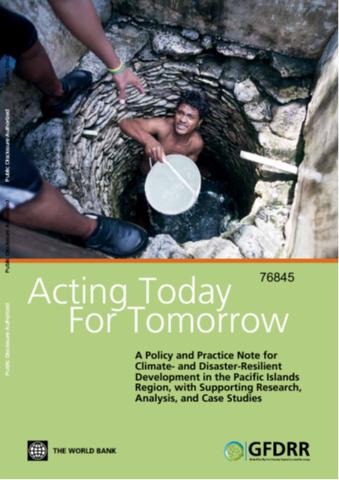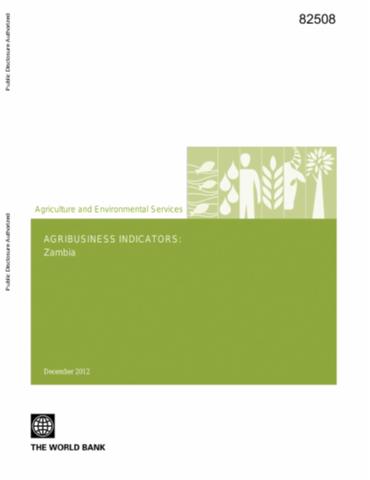The World Bank is a vital source of financial and technical assistance to developing countries around the world. We are not a bank in the ordinary sense but a unique partnership to reduce poverty and support development. The World Bank Group has two ambitious goals: End extreme poverty within a generation and boost shared prosperity.
- To end extreme poverty, the Bank's goal is to decrease the percentage of people living on less than $1.25 a day to no more than 3% by 2030.
- To promote shared prosperity, the goal is to promote income growth of the bottom 40% of the population in each country.
The World Bank Group comprises five institutions managed by their member countries.
The World Bank Group and Land: Working to protect the rights of existing land users and to help secure benefits for smallholder farmers
The World Bank (IBRD and IDA) interacts primarily with governments to increase agricultural productivity, strengthen land tenure policies and improve land governance. More than 90% of the World Bank’s agriculture portfolio focuses on the productivity and access to markets by small holder farmers. Ten percent of our projects focus on the governance of land tenure.
Similarly, investments by the International Finance Corporation (IFC), the World Bank Group’s private sector arm, including those in larger scale enterprises, overwhelmingly support smallholder farmers through improved access to finance, inputs and markets, and as direct suppliers. IFC invests in environmentally and socially sustainable private enterprises in all parts of the value chain (inputs such as irrigation and fertilizers, primary production, processing, transport and storage, traders, and risk management facilities including weather/crop insurance, warehouse financing, etc
For more information, visit the World Bank Group and land and food security (https://www.worldbank.org/en/topic/agriculture/brief/land-and-food-security1
Resources
Displaying 3031 - 3035 of 4907Acting Today for Tomorrow
Pacific island countries continue to be among the most vulnerable in the world: they combine high exposure to frequent and damaging natural hazards with low capacity to manage the resulting risks. Their vulnerability is exacerbated by poorly planned socioeconomic development, which has increased exposure and disaster losses, and by climate change, which has increased the magnitude of cyclones, droughts, and flooding. Currently, inefficient management of risks negates development gains and incurs large costs for national and local governments.
Agribusiness Indicators
Agriculture and agribusiness play an important role in the Zambian economy, contributing around 20 percent of gross domestic product (GDP) in recent years and about 12 percent of national export earnings. Agriculture employs nearly 70 percent of the labor force and remains the main source of income and employment for most of the people living in rural areas. The objective of the Zambia agribusiness indicators (ABI) country report is to examine factors that have affected agricultural productivity, market access, and the policy environment for agriculture in Zambia.
The Land Governance Assessment Framework: Identifying and Monitoring Good Practice in the Land Sector
Increased global demand for land underscores the need for well-designed, country-level land policies to protect long-held rights, facilitate land access, and address constraints to growth. However, reforms are often technically complex, politically sensitive, and time consuming. It is thus critical to identify priority issues in a participatory way, have a clear understanding of how they fit into the broader policy context, and be able to monitor improvements over time.
Climate Resilient Cities : A Primer on Reducing Vulnerabilities to Disasters
Climate resilient cities a primer on reducing vulnerabilities to disasters is prepared as a guide for local governments in the East Asia Region to better understand the concepts and consequences of climate change; how climate change consequences contribute to urban vulnerabilities; and what is being done by city governments in East Asia and around the world to actively engage in learning, capacity building, and capital investment programs for building sustainable, resilient communities.
Colombia Urbanization Review : Amplifying the Gains from the Urban Transition
The efficiency and productivity of
Colombia's urban system will be a key determinant in
the ability of the country to transition from a middle
income to a higher-income economy. Colombia, as with most
Latin American countries, has experienced positive growth
rates in the past few years, mitigating the potential
adverse impacts of the global financial crisis. High
commodity prices as well as improvements in macroeconomic









